Small Town Noir is a study of life and crime in New Castle, western Pennsylvania. The site compiles the mugshots of criminals who lived in the town in the 1930, 40s and 50s, with notes on their offences. The mugshots were pulled from the rubbish when the town’s police department threw them out. The stories of these lives comes mostly from old copies of the local paper, the New Castle News.
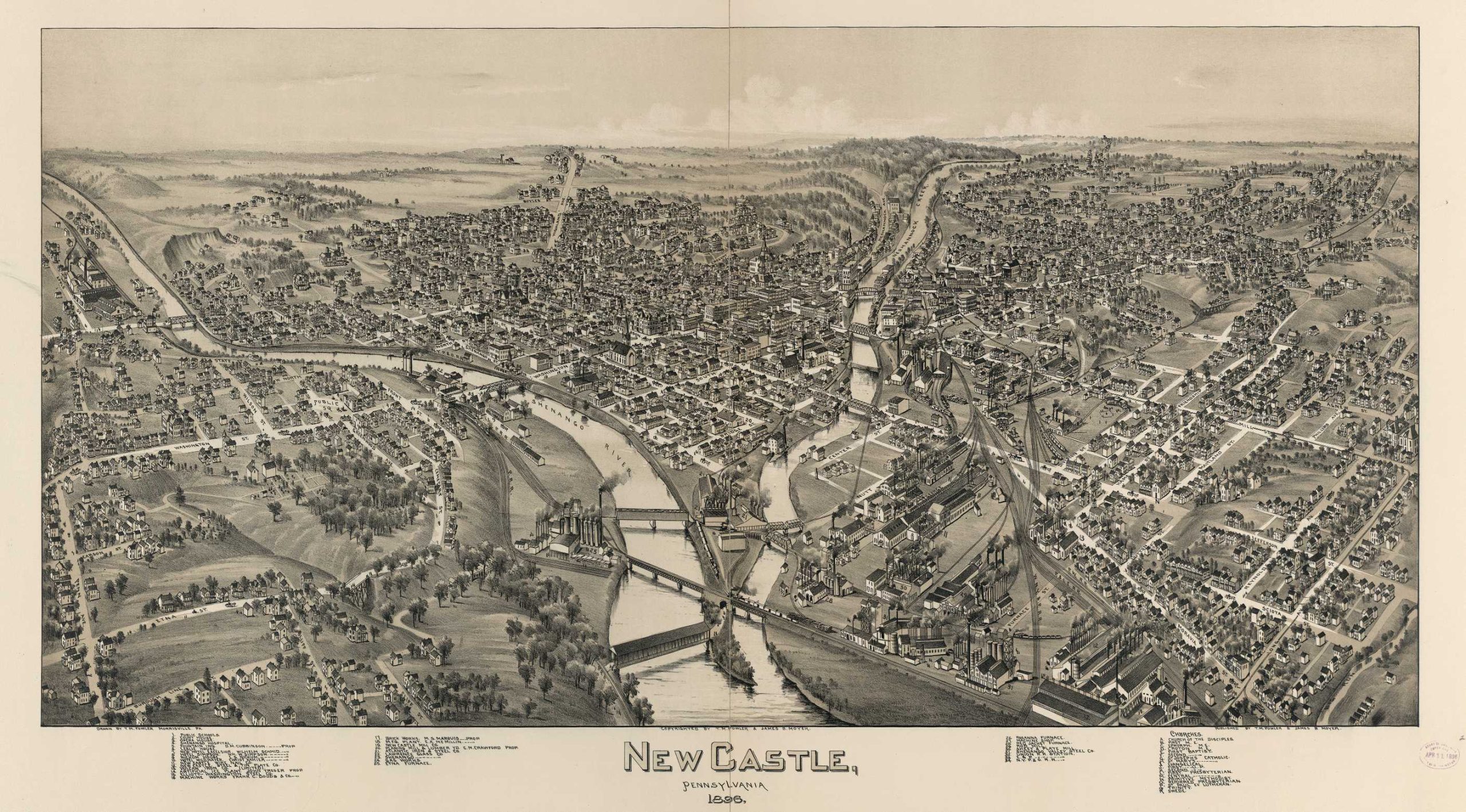
Rising employment in the industrial town caused the population to triple between 1890 and 1900. Things changed in the 1930s when the Great Depression hit New Castle hard .But when manufacturing was needed for WWII and the Korean war, the place boomed, hitting a peak population in 1950 at 48,834 (it’s now around 28,000).

Nick Flueras came from Warren, just over the Ohio border.
He was driving through New Castle on a Sunday night in 1948 when he crashed his car into another car that was waiting for the lights to change at the junction of Atlantic avenue and West Washington street.
A city physician determined that Nick was under the influence of liquor but another physician, engaged by Nick himself, said that the symptoms that had been attributed to drunkenness were the effects of shock. The police charged Nick with drunken driving and released him on bail, but the case never came to court. The conflicting evidence made the process more trouble than it was worth.
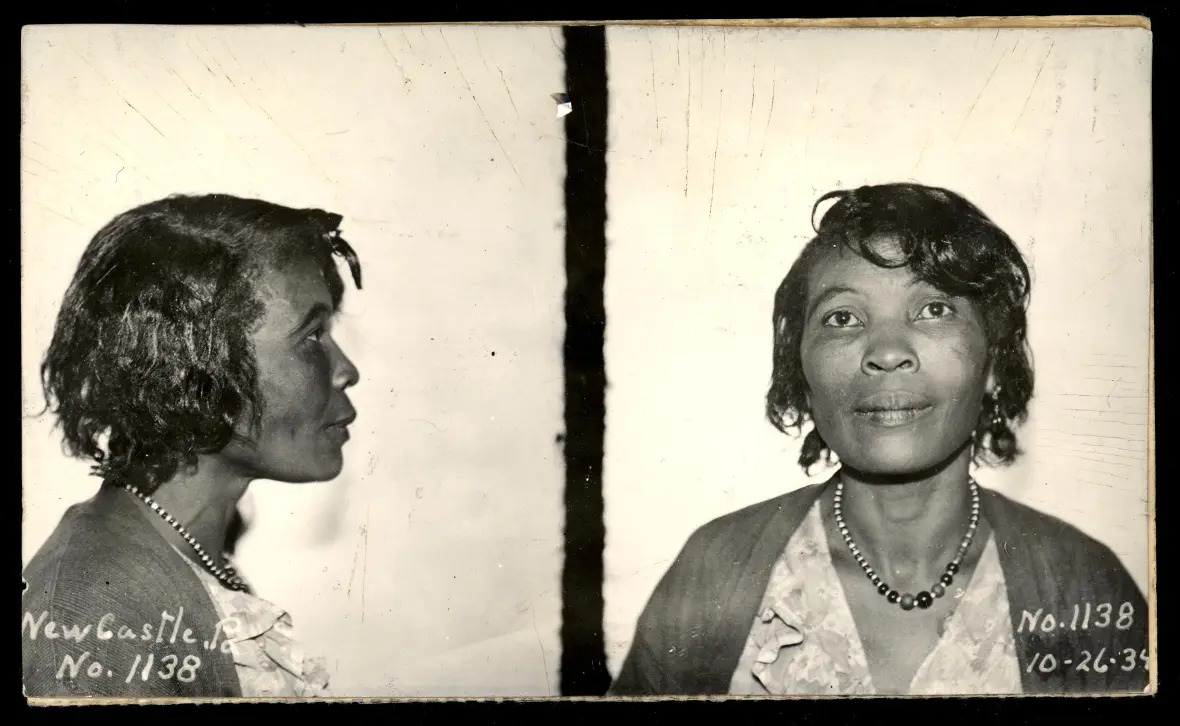
Katie Payne took a razor blade to the house at the rear of 108 South Jefferson street where her husband, John, was staying with young, pretty Ethel McGowen.
She slashed Ethel McGowen across the face, twice. When Ethel fell to the floor, curling up to protect herself, Katie slashed her legs, arms and hands. Ethel wasn’t going to be pretty any more.
Katie was arrested and held in jail while Ethel was examined in hospital. If Ethel had died, Katie would have been sent away for murder, but she lived. A week after the attack, she was well enough to leave the hospital, and Katie was released from jail. The case never came to trial.
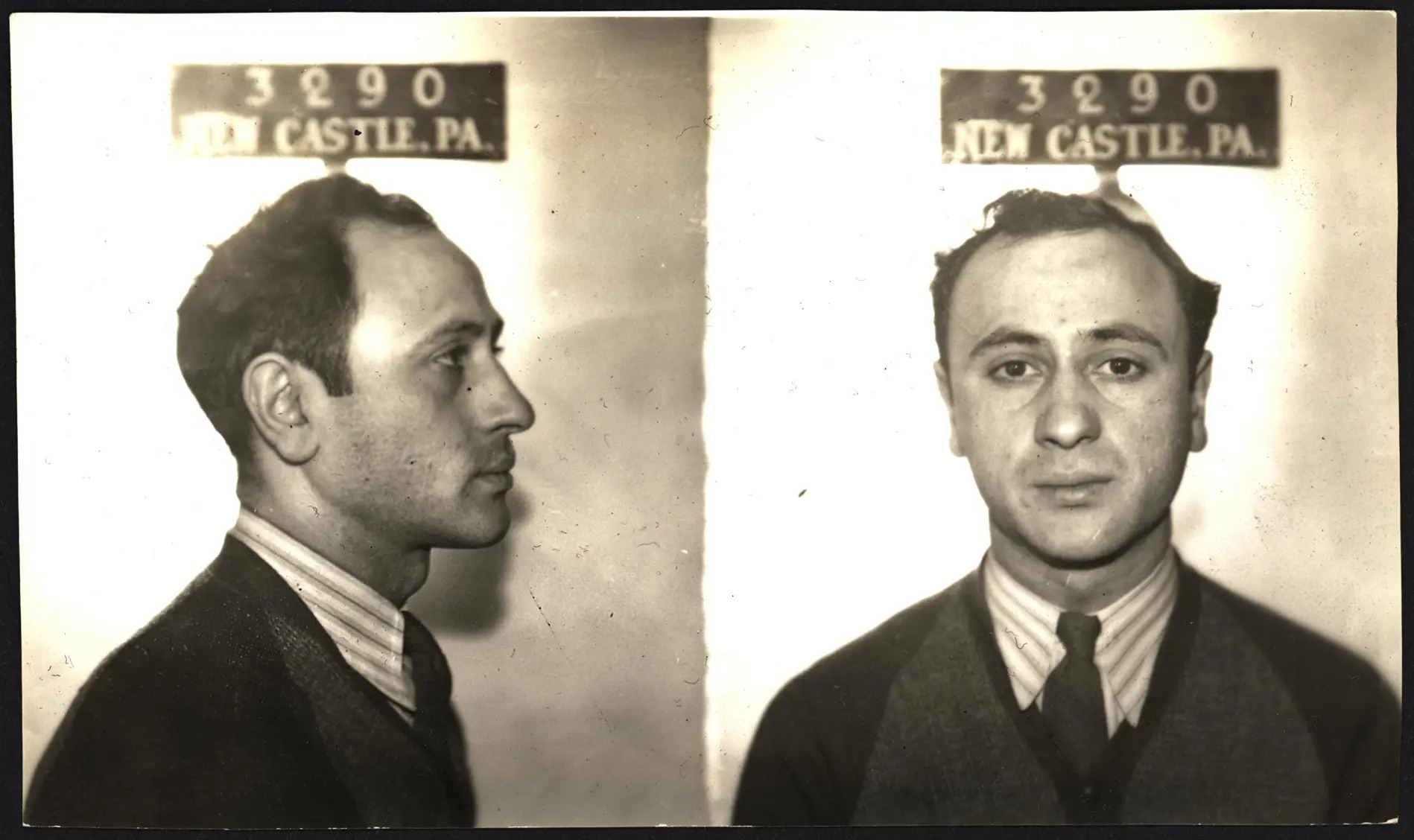
Jimmy Pasta made his money running illegal numbers games.
He called himself a bill collector. He was arrested from time to time on gambling-related charges, staying out of jail by paying hundreds of dollars in fines. Just after three o’clock on the nineteenth of September, 1940, he was sitting in his car in Ellwood City when he saw the chief of police, Ernest Hartman, stop a car on the bridge over the Connoquenessing creek and open fire with his Tommy-gun when three men got out holding revolvers. One of the men fell to the ground and was dragged back into the car by the other two. They drove off while Hartman was re-loading his gun.
An off-duty police officer, Ed Shaffer, got into Jimmy’s car and told him to follow the men. He did what he was told.
Earlier that month, three ex-convicts who had met in Rockview penitentiary—Virgil Evarts, Albert Feelo and Kenneth Palmer—broke into Rohrer’s gun store in New Castle and stole twenty revolvers, five rifles and dozens of boxes of ammunition. They had already robbed an insurance office in Farrel of $400, and planned to use the guns in a series of heists in small banks across western Pennsylvania.
On the day Jimmy saw them, they had held up a bank in Harrisville, twenty miles east of New Castle, making off with around $2,300. Police in the surrounding towns had been told to look out for their car, a black 1939 Buick club coupe. They had driven south through Ellwood City, where the chief of police had been waiting with his Tommy-gun. All three were wounded by Hartman. Evarts was the least badly hurt, with just two bullets in his chest. Palmer was wounded in both legs. Feelo’s spine was shattered and his lungs were punctured. His legs were torn up.
Fifteen miles out of town, their car ran off the road. Evarts stopped a passing car and forced the driver and his passenger out. Feelo and Palmer were being moved into the new car when Jimmy and Shaffer, both unarmed, drew up. Evarts ordered them at gunpoint to help them carry the wounded men.
Later that day, Jimmy told a reporter what happened next. “They said all seven of us couldn’t ride in that old car. I’ve read enough gangster stories to be plenty scared by that.” He saw Evarts put the rifle on Palmer’s lap and walk around to the driver’s side. “The car was between us and I figured it was now or never. I grabbed the gun from Palmer and pointed it at Evarts. He made a move like he was going for a gun and I fired through the window at him. He fell over the hill. Then I climbed down the hill where Evarts was moving, trying to get up. I hit him over the head with the gun and he passed out.”
He returned to the road to find that Shaffer had found a wrench and had beaten Palmer over the head until he was unconscious. The chief of police arrived in time to disarm Feelo, who was weakly trying to raise a revolver to shoot.
Evarts died when Jimmy hit him. His skull caved in. Feelo died in the hospital a day later. Palmer was sent back to Rockview penitentiary.
Jimmy was given a plaque and a gold Gruen wristwatch, which never ran. He took it to the jewelers to be repaired, but they said there was nothing wrong with it. He kept the plaque, but got rid of the watch.
Jimmy eventually quit running numbers. He became a sales manager for a furniture store and was elected head of Ellwood City’s Sons of Italy lodge, a post he held for most of the sixties. He died in 1991, at the age of seventy-five.

William LaRue Hill had received a bad conduct discharge from the marines.
After he came home to New Castle, he broke into an old woman’s house and stole a .38 revolver. He loaned the gun to some friends of his who wanted to hold up a filling station. They had to abandon the job when the youngest of them, a fifteen-year-old boy named George Kordish, got scared and refused to go through with it. The boys drove around town for an hour or so, beating Kordish with the butt of the revolver. They dumped him at his house. He crawled into the back seat of his stepfather’s car, where he was found later, covered in blood.
The boys gave the gun back to William. He and a couple of other friends spent all the following Sunday drinking. By five in the morning, they were tired and looking for somewhere to sleep. They went to the Leslie hotel, where William pulled out the gun and threatened to shoot the clerk unless he gave them a room. He refused and they left. The police picked William up shortly after, as he was standing on his own in the middle of the East Washington street bridge, gazing into the water.

Alice Steel was arrested for drunkenness and disorderly conduct.
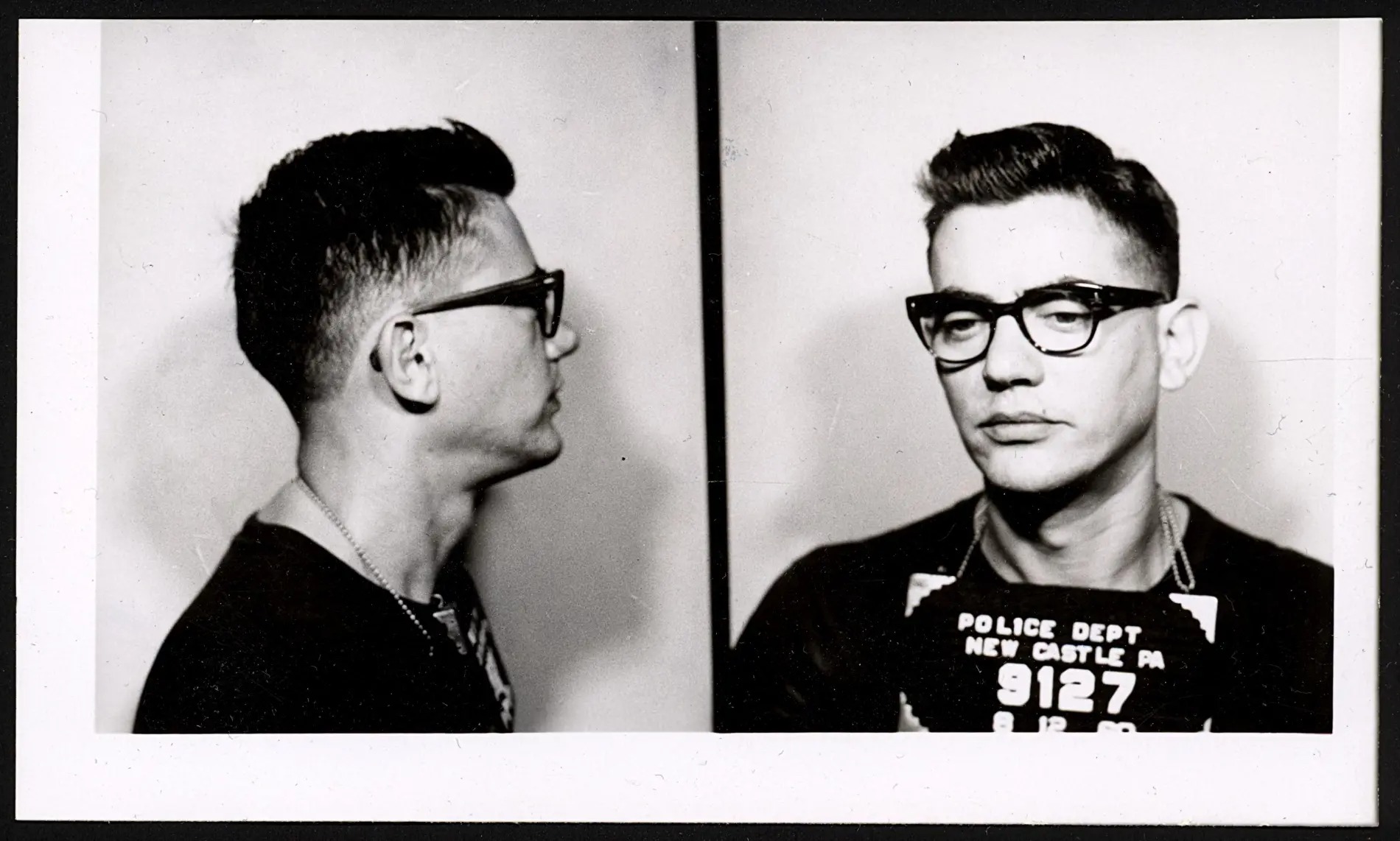
Sidney Fell was arrested for engaging in an act of sodomy in an empty office on the fifth floor of the Greer building on North Mercer street.
He and another man had been discovered after occupants of the building, on the look-out for a thief who had stolen $17 from a secretary’s wallet the day before, had noticed the two men loitering suspiciously in the corridors.
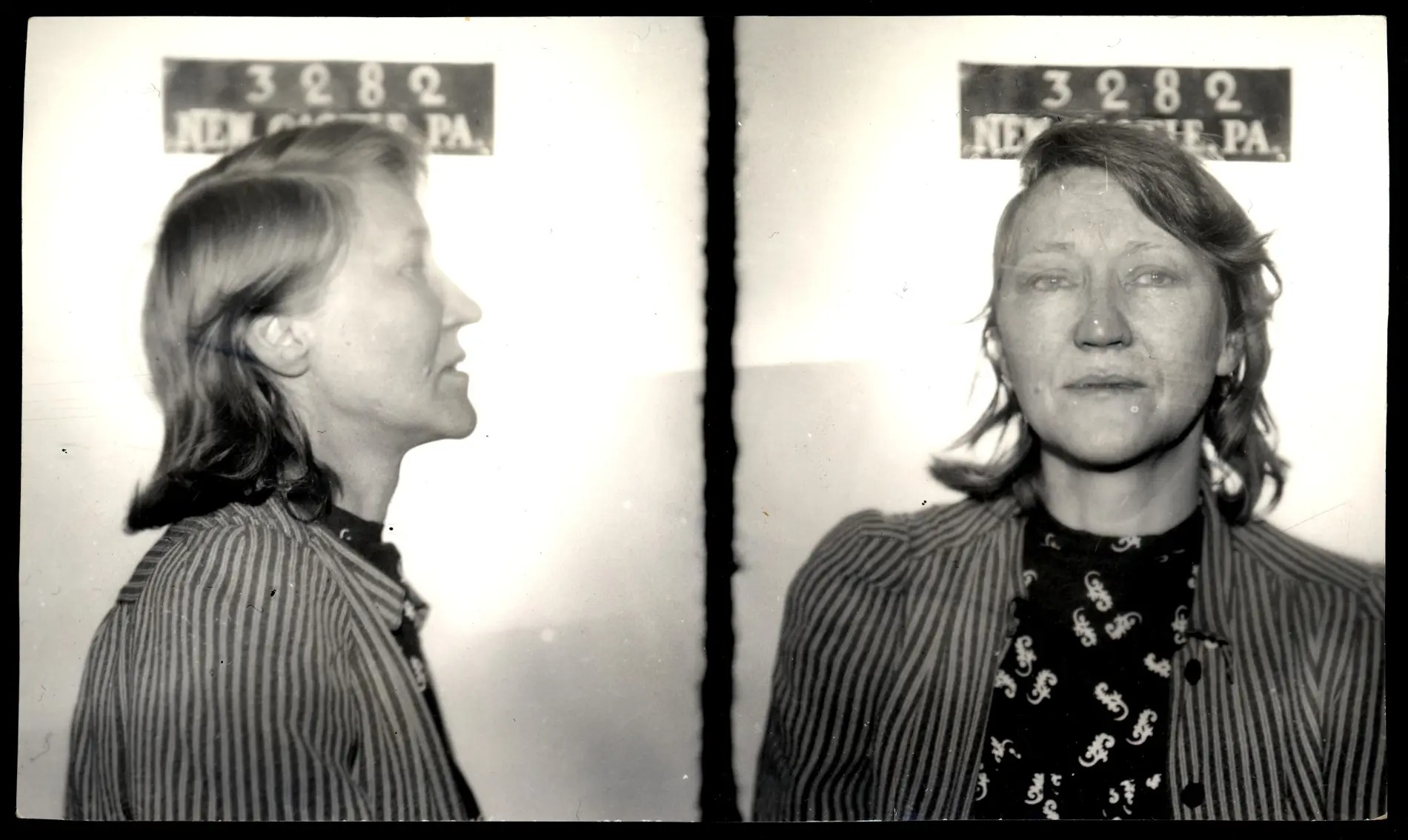
The wet spring weekend in 1940 during which Loyes Langdoff was arrested for being drunk and disorderly was an extraordinarily quiet one for the town, and only one crime story appeared in the New Castle News of Monday, 4 March:
“REPORT COAT STOLEN — Detectives were summoned to the Strouss-Hirshberg store, Saturday afternoon, it having been reported that someone had stolen a woman’s blue Chlnelle coat, worth $39.95.”
Detectives Moore and Young were assigned to solve the robbery. They appear never to have done so.
The heavy rains over the weekend melted the last snow that had lingered since winter, but evidently dampened spirits in town. However, a report was made to the paper that, on that gloomy Saturday afternoon, some “beautiful blooming Amaryllis lilies of a salmon hue” and a red begonia had been observed in the front window of a home on Wilson avenue, which cheered the passerby who saw them, but caused a journalist to reflect, “Years ago, blooming plants in the windows of homes could be seen quite often this time of the year, but for some reason this custom has gone into relapse.”
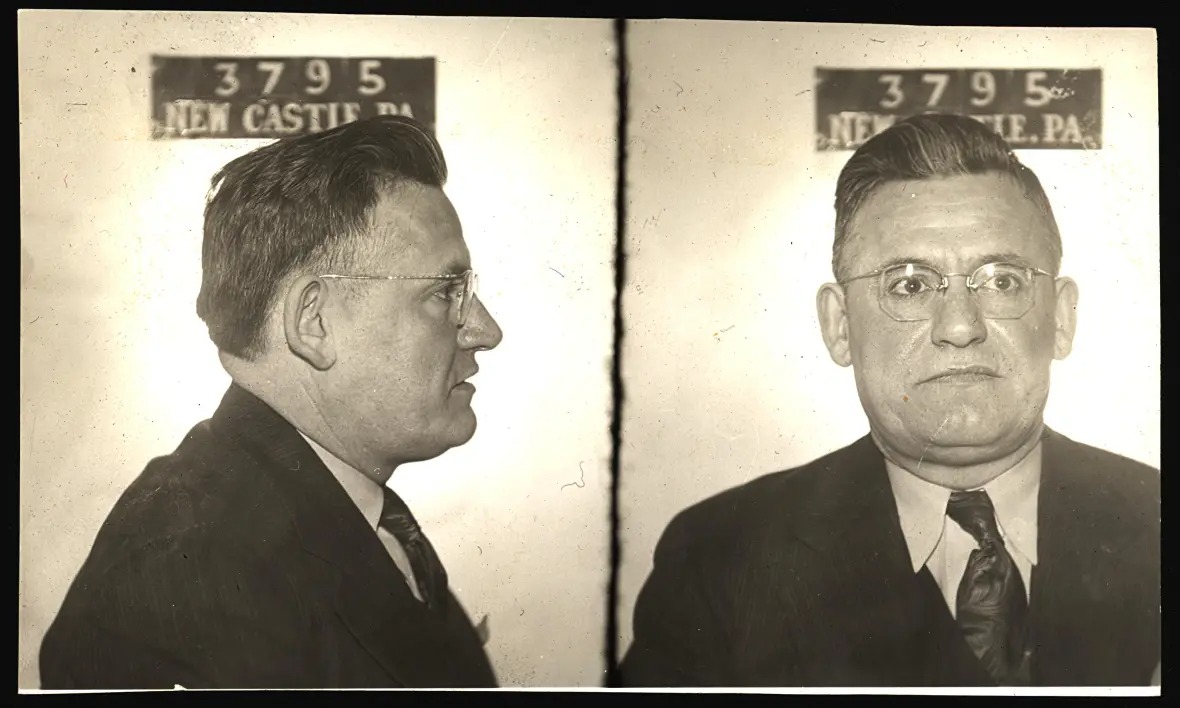
George Marousis George worked in a cigar store on the Diamond, changing its name from Marousis Cigars to the American News Stand not long after he was arrested for running a lottery on the premises, during the county detective’s crackdown on numbers operations in the city.
George worked at the store for fifty years, until he died in 1969, at the age of seventy-two. Two years after his death, Pennsylvania established a state lottery. The American News Stand was the only ticket agent in downtown New Castle.

In 1937, when he was eighteen, Frank Soda and a couple of his friends were arrested after a high-speed chase through Lancaster, Ohio, which started when they filled up their stolen car at a gas station and drove off without paying.
The police shot out their tires. Frank’s friend, Pete Polinsky, threatened the police with a shotgun. They had only been trying to impress a girl who had accepted their offer of a ride. The girl was sent home; the boys were sent to jail.
Frank was twenty-six years old, with a wife in Warren, Ohio, when he got a New Castle girl pregnant. She went to the police when he refused to support the child, and Frank was charged with adultery and bastardy. Before his case could be heard, he was returned to Warren, which had a prior claim on him in connection with a burglary charge. The mother of his child, who had expected the court to order Frank to pay her around $3 a week, the usual outcome of a bastardy case, was told she would have to wait until Ohio had done with him.
The court in Warren found Frank guilty and sent him to Trumbull County jail for two to four years. He escaped a month later. Every Wednesday afternoon, a local church group visited the prison to conduct services. After observing their routine, Frank and three other convicts simply followed them as they left through the double doors of the cell block. When the turnkey opened the outer door, the men pushed past him and ran off into the back streets of the town.
The men Frank had chosen to break out of jail with were much younger than he was and were all serving sentences for armed robbery and attempted murder. When they were caught a week later, holding up a filling station in New Jersey, Frank was not with them. Shortly before the police had arrived, he had stolen a car and quietly left the scene. There is no further record of his life.
More here. And you can read the story of our best mughot, that of the indomitable Goldie Williams.
Would you like to support Flashbak?
Please consider making a donation to our site. We don't want to rely on ads to bring you the best of visual culture. You can also support us by signing up to our Mailing List. And you can also follow us on Facebook, Instagram and Twitter. For great art and culture delivered to your door, visit our shop.

